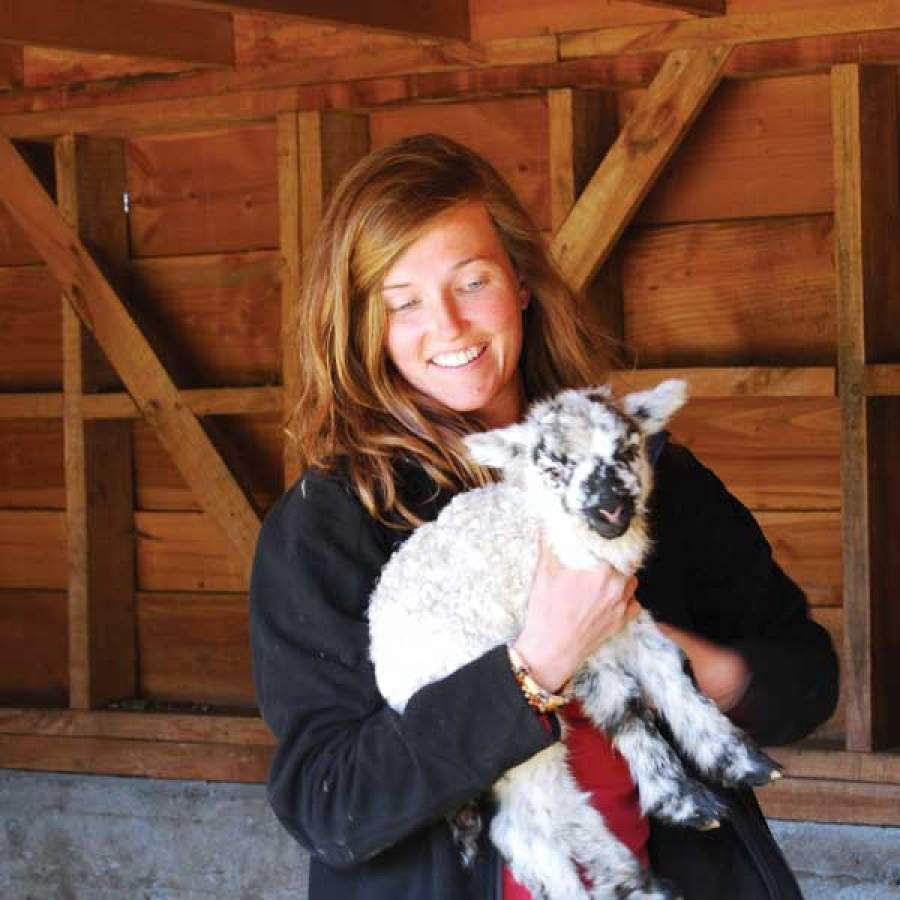From the first moment that we heard about the WWOOF program (World Wide Opportunities on Organic Farms), we were hooked. For two young professionals in search of a break from the grind, the idea of spending our days working in a beautiful countryside and our nights eating the fruits of our labor (quite literally) while surrounded by a readymade international group of friends seemed, well, perfect.
The idea behind WWOOF is essentially a barter system; you give hours of work to an organic farm somewhere in the world and in exchange you receive room and sometimes board. On the WWOOF website you will find every type of host situation imaginable in terms of location, variety of work, living arrangements, and time commitment. WWOOF’s role is to act as a third-party meeting place, where organic farms from over 100 countries create listings describing their farm and needs. From there it’s a do-it-yourself matching process. Most countries have their own independent WWOOF organization and website, and though the listings are always free to view, you must become a member (for a fee ranging from $5 to $65 per country) to receive the farm contact information.
One of the most simultaneously beautiful and difficult things is that your experience is essentially a blank slate—you could work on a mushroom farm in Morocco or tend the garden at an eco-lodge in Patagonia.
After dreaming of farm life for weeks, we decided to go for it and began our search, only to quickly discover that navigating WWOOF takes some work. The biggest hurdle in the process is that farm descriptions range from engaging, detailed accounts to a couple vague sentences and an out-of-context picture. Further, WWOOF is only a meeting place and does not assist you in your search or have a forum to review host farms.
Since the structure is more like an online dating service than a full-service placement agency, it can be hard to determine the accuracy of the listings or if those low in details could actually be organic farming paradises. But instead of just picking a farm and hoping for the best, there’s much you can do ensure your WWOOF trip matches your dreams. Here are the insider tips from a pair of veteran WWOOFers on how to create the experience that is perfect for you:
Before you even turn on your computer, write down a description of the farm of your dreams.
One of the most simultaneously beautiful and difficult things about WWOOF is that your experience is essentially a blank slate. You could work on a mushroom farm in Morocco, produce olive oil in Nazareth or tend the garden at an eco-lodge in Patagonia (all real listings). You could spend your days managing horses, composting, cooking, or building everything from community gardens to grey water systems. And for living conditions you could experience everything from camping to sleeping in a yurt. With so many tempting options, try thinking about what you really want out of your experience and consider your personal needs and limits before diving in and getting distracted by the disorienting multitude of choices available.
Do guerrilla research to determine if the farm will meet your expectations.
In today’s world, even the most remote farms cannot escape the reach of the Internet. The chances are that if you dig deep enough, especially amongst blogs, you’ll be able to find information about most WWOOF farms. Try combining search terms that include WWOOF and the name of farm and when you do find them don’t be afraid to contact the bloggers/reviewers who’ve been there to get reports from on the ground. Alternately, before committing to a farm, ask the hosts if they have contact information for previous WWOOFers, in order to get firsthand feedback what you may experience.
Be thorough and persistent with your questions for potential hosts.
Once you know what you want and have done your homework, it’s time to start the dialogue. The most important thing to remember during this step is that WWOOF is only a listing and ensuring the experience matches your expectations is up to you. We’ve heard stories from fellow WWOOFers who didn’t ask about their accommodation in advance and ended up sleeping in a barn, while another was promised that they would learn “farming skills” but ended up weeding for the entire stay. Though rare, unpleasant surprises like these happen—but they happen far less often to those who ask lots of questions about the specifics of their stay and are persistent if questions go unanswered.
Have a safety net.
WWOOFing can be nerve-racking because it requires you to rely on someone from another country that you have never met. To ease these worries, create a list with the basic information of nearby alternate farms in case your needs aren’t being met. Also, don’t hesitate to discuss any issues with your host. Remember, WWOOF is an exchange and if you aren’t getting your end of the bargain, there shouldn’t be any deal.
Down the Garden Path: 6 Best Tips for Choosing the Right WWOOF farm
Add this article to your reading list



